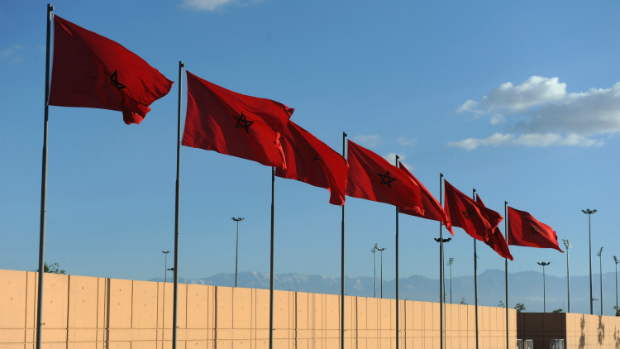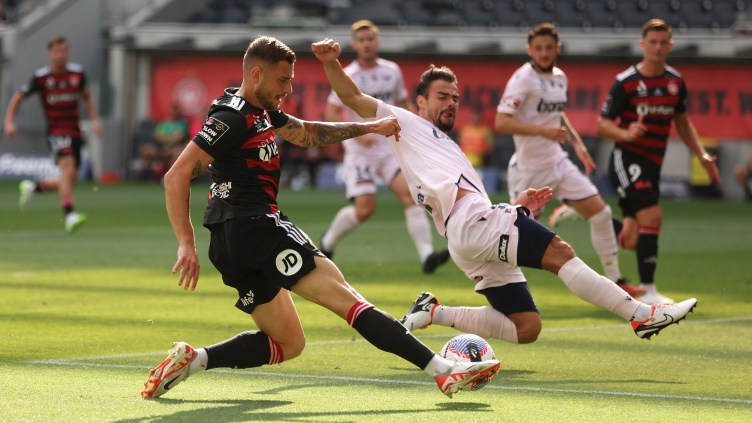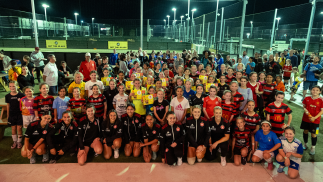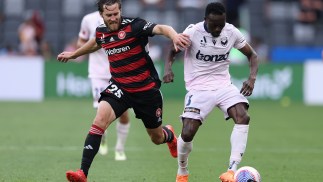Western Sydney Wanderers will become the fourth Australian club side to compete at the FIFA Club World Cup when they make the trek to Morocco in December and line up against CONCACAF Champions Cruz Azul of Mexico with the tantalising prospect of facing world powerhouse Real Madrid’s Cristiano Ronaldo, Gareth Bale, Toni Kroos, James Rodriguez et al., in the last four should they be successful.
In doing so, the Red & Black will become part of the history of a competition that, in its current guise, dates back to 2000. That tournament replaced the original Intercontinental Cup (known as the Toyota Cup and played between the champions of Europe and South America) to give a more global reach to the event. Much-maligned on its debut in Brazil, Manchester United were lambasted by the public at large for entering and withdrew from the FA Cup that season (as holders) to participate, it has since grown into a showpiece FIFA event.
South Melbourne took part in that inaugural tournament, losing 2-0 to Brazilians Vasco Da Gama and Manchester United and 3-1 to Mexican side Necaxa. Interestingly John Anastasiadas, now Head Coach of the Bentleigh Greens team that caught the imagination of the nation on their march to the Westfield FFA Cup Semi-Finals, scored South Melbourne’s goal becoming the first player to net a goal at the championship for an Australian team.
Real Madrid kick-started that edition of the FIFA Club World Cup with a 3-1 win over Al-Nassr of Saudi Arabia with Nicolas Anelka netting the first goal of the new tournament. Corinthians of Brazil would be crowned World Champions with a penalty shoot-out success over compatriots Vasco Da Gama after a 0-0 draw in front of 73,000 at the Estadio do Maracanã in Rio De Janeiro.
The second edition was scheduled to take place in Spain in 2001 but collapsed due to FIFA’s financial situation at the time and the old version of the UEFA Champions League winners facing the winners of the Libertadores Cup was reinstated until 2005. The tournament would take place in Japan and would feature the winners of the six continental titles representing their Federation.
Sydney FC represented Oceania after waltzing their way, virtually unchallenged, to the OFC Club Championship. After losing 1-0 to Costa Rican side Deportivo Saprissa, the Sky Blues finished fifth, seeing off Egyptians Al-Ahly 2-1 in the fifth/sixth placed match thanks to goals from Dwight Yorke and David Carney. Sydney’s conquerors Saprissa were knocked out by Liverpool in the semi-final stage before the Reds themselves were beaten in the Final as a 27th minute goal from Mineiro won the title for Sao Paolo.
Brazil’s domination of the event continued in 2006 as Internacional defeated Barcelona 1-0 in the Final with a goal from Adriano Gabiru eight minutes from time, settling the issue. But that was to be it as far as South American winners were concerned until 2012 as European sides began to dominate the competition.
AC Milan kick-started a run of five consecutive successes for UEFA Champions League winners as they beat Argentinean outfit Boca Juniors 4-2 in an exciting culmination to the 2007 edition held in Japan with the Final played at the International Stadium in Yokohama. Filippo Inzaghi scored twice for the victors with Alessandro Nesta and Kaka adding the others. Twelve months later it would be the Red Devils of Manchester United celebrating.
United romped to the 2008 Final of the FIFA Club World Cup with an exquisite 5-3 win over Gamba Osaka in the last four, Wayne Rooney grabbed a brace and Cristiano Ronaldo was also on the score-sheet.
United could have been playing Adelaide United had the Reds overcome the challenge of Gamba in the Quarter Finals. They fell just short, losing 1-0, having got to that stage with a narrow 2-1 win over OFC Champions Waitakere United (New Zealand) in the Play-Off thanks to strikes from Travis Dodd and Daniel Mullen. A Rooney goal proved enough for United to claim the trophy even after the dismissal, early in the second half of Nemanja Vidic against LDU Quito.
2009 saw Barcelona finally claim the mantle of the best side in the world but they were made to work hard for the moniker as only a last-minute goal from Pedro denied Estudiantes victory. The Argentinians were eventually undone by, perhaps inevitably, a goal from Lionel Messi, the genius chesting in the match-winner in extra-time.
For the next two years the competition shifted from Japan to the United Arab Emirates. 2010 saw a miracle story as African Champions TP Mazembe of Congo made the world take notice as they knocked out Pachuca (Mexico) and Internacional (Brazil) before meeting their demise in the Final at the hands of Rafael Benitez and a well-oiled Internazionale machine.
Goran Pandev, Samuel Eto’o and Jonathan Biabiany scored the goals in a 3-0 cruise for the Nerrazzurri. A year later a Messi inspired Barcelona would be equally at ease in winning the title, Messi grabbing a brace as Barca beat Santos 4-0 as the tournament reverted back to Japan and Yokohama.
Europe’s stranglehold on the trophy was finally prised away by Corinthians in 2012 who claimed their second crown, some thirteen years after their first, with a narrow success against Chelsea, Paolo Guerrero with the match-winner.
Bringing us up to date, last year’s tournament was held, as this year’s will be, in Morocco with the Final played in Marrakesh. Bayern Munich beat the hosts Raja Casablanca 2-0 in a rather dull finale, Dante and Thiago Alcantara getting the goals in what amounted to little more than a stroll for the Germans.
The Wanderers will be looking to write their own chapter when they take to the field on 13 December. The eyes of the world will be on Tony Popovic and his team. Game on!




